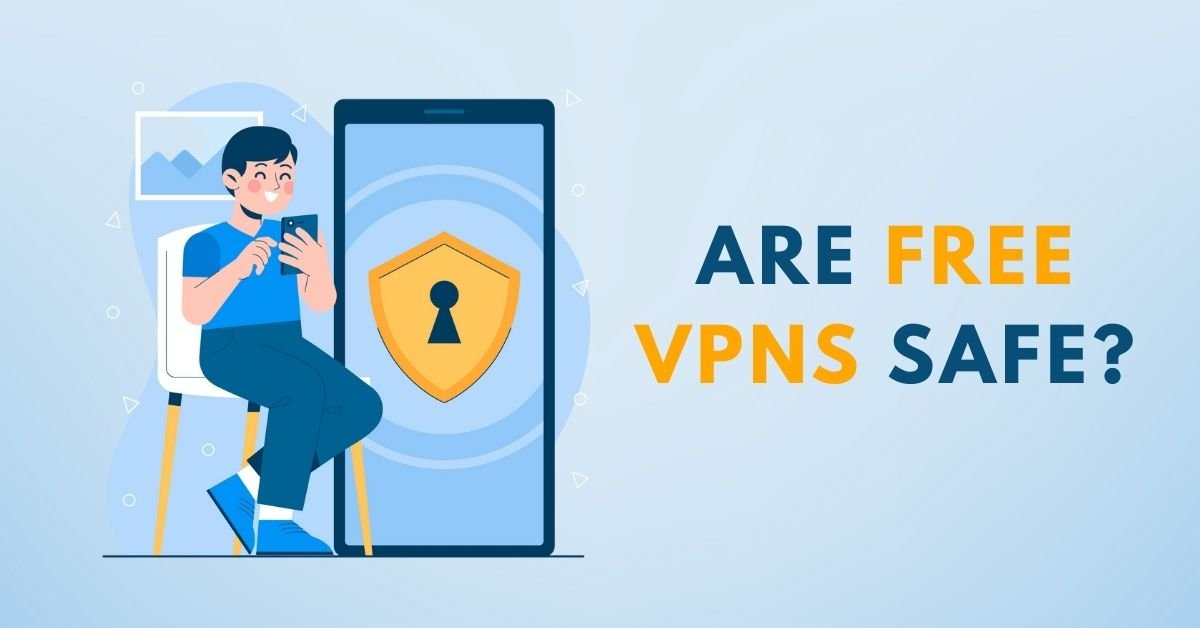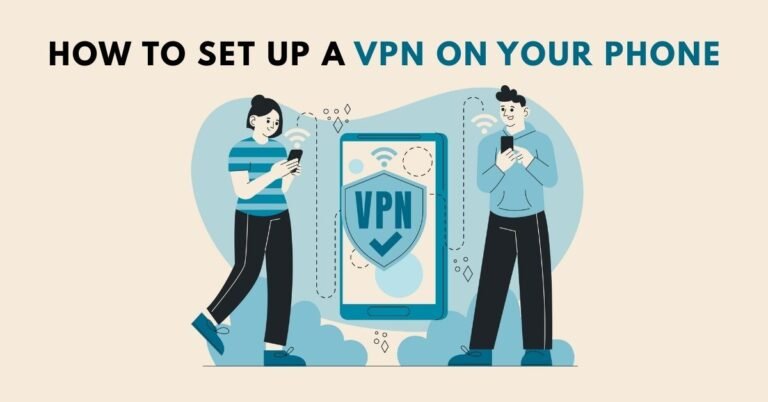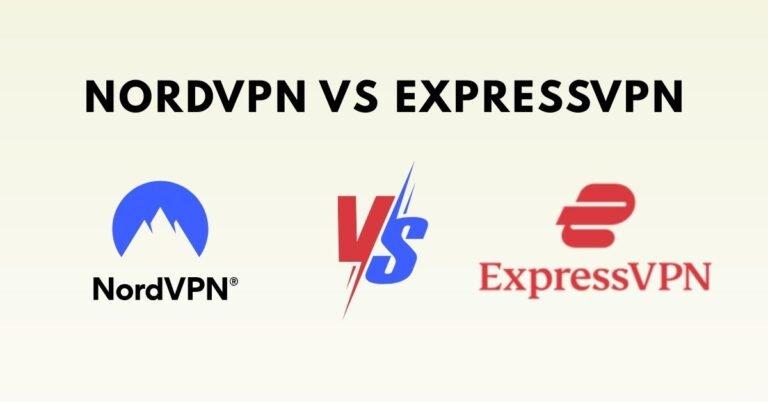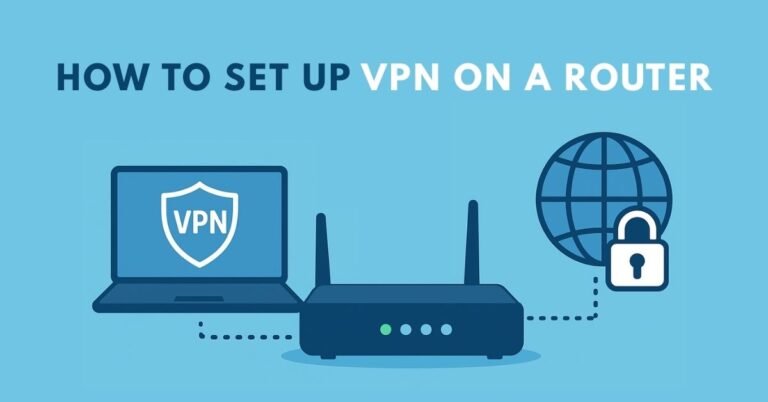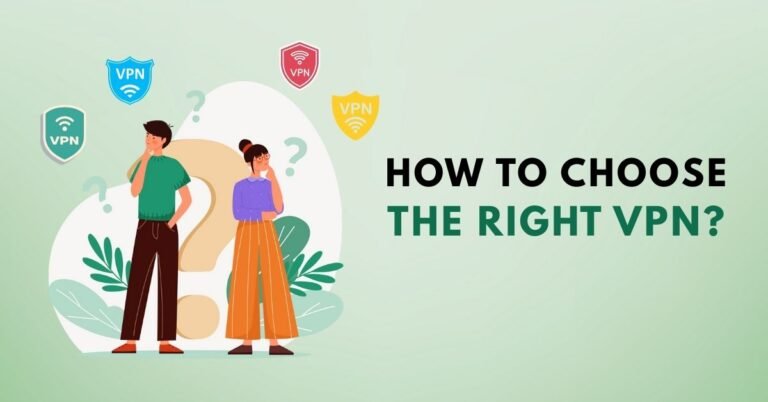Introduction
Free VPNs can seem alluring—no monthly fee, easy download, instant privacy boost. But are they truly safe? At VPN AdWiser, we’ve reviewed dozens of providers and scrutinized their privacy policies, data practices, and performance. In this comprehensive guide, you’ll learn:
- The hidden dangers and limitations of free VPN services
- Which free VPNs are actually trustworthy freemium options
- Why paid VPNs still offer the best protection
- How to choose a reliable VPN for streaming, torrenting, or sensitive browsing
This WordPress‑formatted post is structured for maximum clarity and SEO impact—with H2/H3 headings, scannable bullet points, and FAQs.
Why People Choose Free VPNs
Many users go for free VPNs for these reasons:
- No subscription costs
- Quick setup and instant access
- Basic privacy and IP masking
- Casual tasks: light browsing or testing a VPN
While tempting, these perks come with serious trade‑offs.
The Hidden Risks of Free VPNs
1. Malware and Bundled Malware
A surprising number of free VPN apps come bundled with malware, adware, or trackers. According to one study, about 20% of free VPN apps are flagged as malware by antivirus scanners Such software can:
- Harvest personal data
- Spy on your usage
- Compromise device integrity
2. Data Harvesting & Logging
Free VPN providers must monetize somehow. When you’re not paying, you become the product. Many collect IP addresses, browsing history, and even sell it to third parties or ad networks. SuperVPN and Hola, for example, sold user bandwidth or logged everything you do.
3. Advertising Overload
Free VPNs often stay alive on aggressive ad revenue. Intrusive ads include tracking pixels and targeted advertising mechanisms. Instead of protecting your privacy, many free VPNs leak data purposefully to drive ad revenue.
4. Weak or Leaky Encryption
Free VPNs frequently suffer from DNS and IP leaks, as well as weaker encryption or missing kill switches. In one report, 88% of free Android VPNs leaked user data during testing. That defeats the whole point of using a VPN to protect your internet activity.
5. Limited Data Caps & Bandwidth
Many trustworthy “freemium” VPNs still cap data: 1–10 GB/month. Proton VPN is a rare exception with unlimited free bandwidth, but most restrict usage heavily.
6. Poor Streaming & Torrenting Support
Free plans rarely unblock Netflix, BBC iPlayer, Disney+, or support fast torrenting. Only a few freemium services like Windscribe and PrivadoVPN have partial success—with heavy limits on location or bandwidth.
7. Inadequate Support & Infrastructure
Free services usually have a small server footprint, high congestion, limited protocols, and no customer support. They struggle during peak use or fail custom tasks like streaming viral content.
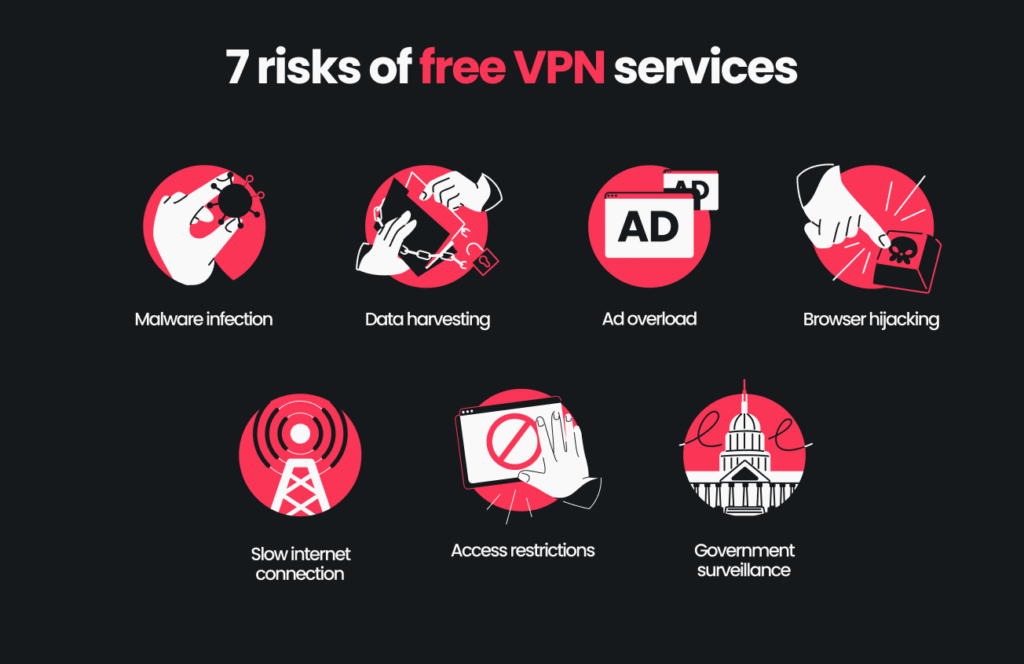
Which Free VPNs Are Actually Safe?
Not all free VPNs are equally flawed. Some reputable services offer limited free plans tied to paid tiers—often called freemium VPNs. These providers use trusted infrastructure and have proven privacy policies.
Proton VPN Free
- No logging, no ads, no data caps
- Based in Switzerland, strong privacy laws, audited no‑log policy
- Limited server locations (3–5), slower speeds when congested, no guaranteed streaming
- Great for privacy‑conscious users or light browsing
PrivadoVPN Free
- Offers 10 GB/month, up to ~950 Mbps in testing
- Supports limited streaming and P2P traffic
- Clear privacy policy, basic encryption, easy interface
Windscribe Free
- 10–15 GB/month (with confirmed email)
- Supports torrenting, built‑in ad/malware blocker
- Multiple server locations, supports WireGuard/OpenVPN
- Interface can be complex for beginners
Hide.me Free & TunnelBear Free
- Hide.me: decent speeds, 10 GB/month, P2P support, 24/7 chat support with paid plans
- TunnelBear: AES‑256 encryption, independent audits, 2 GB/month, unlimited device connections
These freemium options demonstrate that it’s possible to get some free security without giving away privacy.

Free vs Paid VPN: Which One Should You Choose?
Free VPNs: Pros & Cons
Pros:
- Zero monthly cost
- Quick access for light browsing or public Wi-Fi
- Occasional use for IP masking
Cons:
- Security risks (malware, leaks, weak encryption)
- Data/logging, ads, and selling user info to monetize
- Severe bandwidth or device limits
- Often ineffective for streaming or torrenting
Paid VPNs: Why They’re Worth It
Advantages:
- Full privacy and no data logging – Verified by audits.
- Strong encryption and leak protection – AES‑256, kill switch, WireGuard.
- Consistent high speeds and global server access.
- Reliable streaming and P2P support – Unblock Netflix, Disney+, torrent safely.
- Advanced security features – Multi‑hop, obfuscation, split tunneling.
- Responsive support and customer service.
- Better accountability and jurisdiction transparency.
Top paid VPNs like NordVPN, Surfshark, ExpressVPN are consistently recommended in 2025 for performance and trustworthines
When a Free VPN Might Be Acceptable
Even with risks, some use cases justify a trustworthy free VPN:
- Secure casual browsing on public Wi‑Fi
- Temporarily masking IP address when traveling
- Testing VPNs before committing
- Occasional low‑data tasks (checking emails, reading news)
Important: Always pick a known freemium provider—avoid totally free unknown apps in app stores.
How to Evaluate Any Free VPN
Before installing any free VPN, ask:
- Who owns the provider? Check company background.
- Privacy policy: Do they log IPs or browsing data?
- Encryption level: AES‑256 or industry standard protocols?
- Leak protection: Kill switch, DNS/IP test results?
- Data limits & device caps: Enough for your usage?
- Server access & streaming/torrent support?
- Ads or trackers built in?
- Recent independent audits or transparency reports?
If more than one answer is negative or vague—avoid the app.

Real‑World Examples & Research Findings
Case Study: Leakage & Data Logging
A major analysis found that 88% of free VPNs leak identifiable data, and many suffered encryption failures or unstable tunnels. That’s nearly 9 out of 10 free apps failing basic privacy standards.
Free Proxy Risks
A related study on free web proxies showed:
- Only 34.5% of proxies were stable; many had remote code execution vulnerabilities
- Over 16,900 proxies manipulated content, highlighting malicious intent
Free VPN-like tools often behave much like these proxies—unreliable and dangerous.
User Warnings from Technology Communities
An active Reddit thread in r/techsupport cautions, “Free VPNs make money in some way, probably using and selling your data. They most certainly keep logs.”.

Top Safe Alternatives to Free VPNs
If you’re selective, these freemium VPNs offer a safe balance:
1. Proton VPN Free
- Unlimited data, audited no‑logs policy, no ads.
- Limited server choice; slower during peak times.
2. PrivadoVPN Free
- 10 GB/month, fast download speeds, supports streaming and torrenting.
3. Windscribe Free
- 10–15 GB/month, ad & malware blocker, good for P2P.
- Slightly complex interface.
4. Hide.me Free
- 10 GB/month, business‑grade encryption, good support.
For unlimited use, streaming and heavy privacy: Consider upgrading to a paid plan or trusted paid VPNs like NordVPN, Surfshark, or ExpressVPN.
Conclusion
Free VPNs can be tempting—but they often come laden with hidden costs: malware, data harvesting, weak encryption, ads, and bandwidth limits. Whether you’re protecting sensitive data or just want general online safety, free VPNs rarely deliver what they promise.
That said, freemium providers such as Proton VPN, PrivadoVPN, Windscribe and Hide.me represent safer choices—though still limited. For truly reliable, secure, and full‑feature VPN use, paid services remain the gold standard.
FAQ
1. Are all free VPNs unsafe?
Not necessarily. Reputable freemium providers offer limited free tiers that don’t log or sell data. But most completely free apps lack transparency and pose privacy risks.
2. Can free VPNs protect my passwords or banking info?
Rarely. Free VPNs often use weaker encryption, may not kill-switch, and sometimes leak data. They’re not recommended for sensitive activities.
3. Which free VPN has unlimited data?
Proton VPN Free stands out as one of the few truly unlimited no‑logs free VPNs.
4. Do free VPNs work for streaming or Netflix?
Mostly no. Freemium plans like Windscribe or PrivadoVPN might unblock a few services, but paid VPNs are far more reliable for streaming.
5. Is paid VPN worth the cost?
Yes—especially if you care about privacy, speed, streaming, torrenting, or access to many server locations. Paid VPNs offer strong audits, superior infrastructure, and better support.

